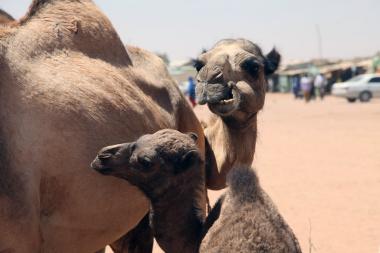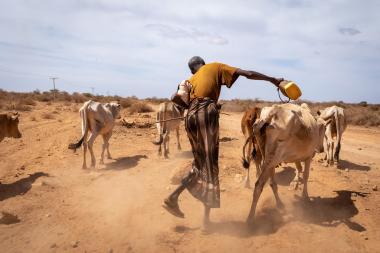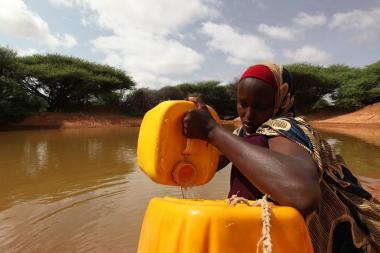Issue brief: Somalia: drought and rising costs take hold
This brief is the second in a series highlighting the challenges facing people from different livelihoods in three sites in Somalia - Burao (Togdheer), Galkayo (Mudug) and Jowhar (Middle Shabelle).
This brief is the second in a series that highlights the challenges facing people from different livelihoods across three sites in Somalia: Burao (Togdheer), Galkayo (Mudug) and Jowhar (Middle Shabelle). It continues the line of inquiry outlined in the report Livelihoods, Conflict and Mediation: Somalia (Opitz-Stapleton et al., 2022).
The economic, environmental, political and social contexts at the local, national and regional levels are continually evolving, and regional to global events such as the economic repercussions of Covid-19 are being felt at the local level. In this brief, we aimed to capture how pastoralists, agropastoralists and farmers are coping with and adapting their livelihoods to this dynamism.
The key messages are:
Inflation is affecting the ability of pastoralists, agropastoralists and farmers to afford basic food items and livelihood inputs. The economic impact on farming and pastoral livelihoods is having a knock-on effect for other economic activities, which depend on their trade.
Interviewees described actions that are predominately short-term coping and survival strategies, rather than long-term adaptation to mitigate shocks being experienced.
Whilst the accumulation of debt is part of economic life in Somalia, our interviews were unable to uncover if the current level of borrowing is beyond people’s means or what the long-term implications of this borrowing means for households. Answering these questions will be important for understanding household recovery.
A lack of violence in the communities interviewed should be noted for future lessons of mitigating future conflict risk. Despite the pressures that people are facing, community-based support and conflict resolution mechanisms are helping to manage tensions.



